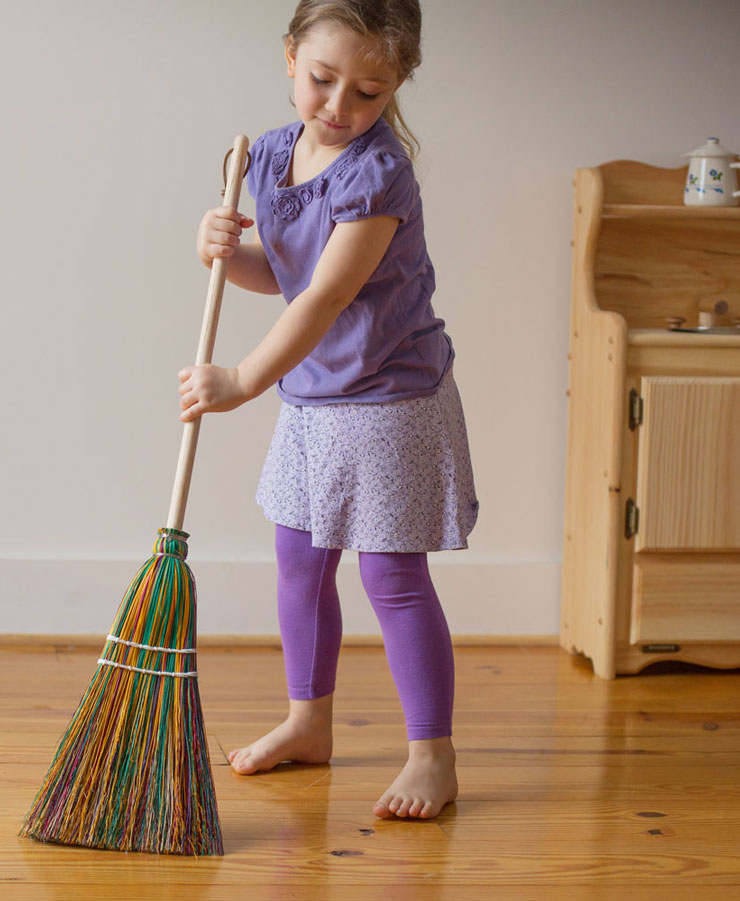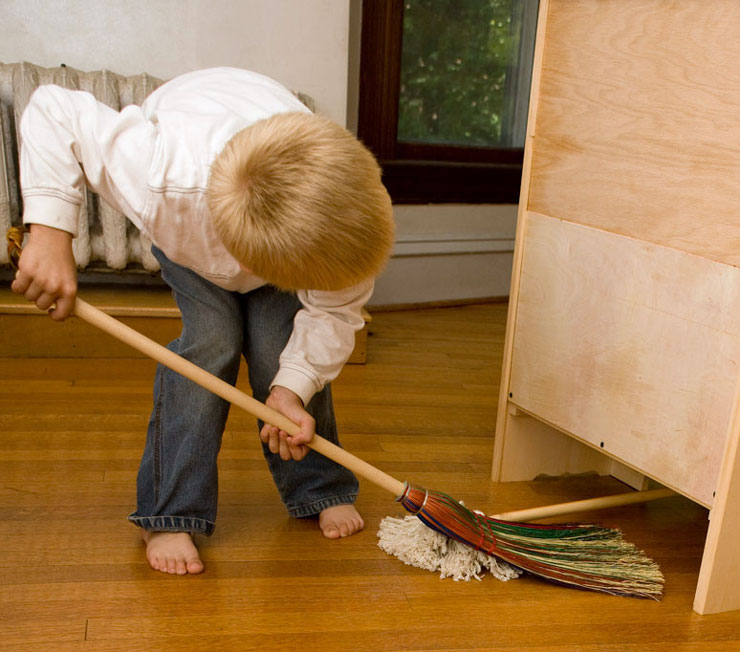Children at Work and Play
Maria Montessori, Rudolf Steiner and Charlotte Mason might not have agreed on many things regarding children and the best way to support their development. However, they all shared at least one similar premise, that children enjoy and even need work and other kinds of purposeful activity. They each had different ideas on how adults should meet this impulse but they all agreed it was there.
One place you might see it surface in your own children is through their play. Take time to quietly observe them as they play alone. What are they learning as they observe and manipulate wooden blocks in their hands, watch endlessly the wheels of a wagon or stroller turn against the floor, push a doll’s head through the neck of a shirt, waggle their thrusting toes as they kick their legs in the air?
Take note of them again as they play in groups. You might hear them reworking the rules or endlessly planning the story of their play, but never actually begin the game. What is happening?
Watch them now when they choose to engage with you. At your elbow, they are a kitchen helper, a gardening buddy or the grocery list keeper. It can be hard as parents to find space for them in our work, but when we do, we are doing far more than entertaining or distracting them.
In each scenario, is it work or play? Is it learning or pleasure? Does the child know the difference? Need there be a difference?!
So let your preschooler try his hand at sweeping, but be open to the idea that even as he diligently wields the broom, he may still only be playing. It is important play; it is play that means he is part of your family, that he has something to contribute, and that someday, he will probably be able to sweep a floor clean. In my experience, this type of play is not about the act of cleaning, not yet. Still, equipping your children with tools sized for them can help the process along. A child-sized broom can make his help less frustrating. Give your child a shovel that is neither cumbersome nor likely to bend and her time in the garden might be more satisfying (and productive!) for both of you.
Working together enhances a sense of shared goals and creates shared experiences. Making room for your children in your work may sound easy enough, but there are always challenges. For example, our children have not been willing to help in any way that they have deemed “menial”. As toddlers and preschoolers, they wanted to pound nails rather than fetch them. They were never willing to merely gather ingredients in the kitchen or carry one item at the grocery store. Now, as teenagers, they are extremely capable, and I feel this comes of bending our will to theirs and making the time to be genuinely engaged in real work from a very young age.
Even as they age, I see the same broad outlines in their play- one still endlessly works out with his friends scenarios and builds characters in Dungeons and Dragons, but never begins the adventure. Another works with the neighborhood children to raise money to buy goats that she knows might never arrive. And the third keeps our kitchen stocked with all she needs for making cupcakes or eggplant dip. All three of our children can put a meal on the table and have been able to for years. They all three are very good at stating whether they feel up to a certain task; they have done enough real work to both be willing to try new jobs and have an awareness of their limitations.
In your home, you could start by saying yes when your children want to help with a task; it might mean evaluating how they can safely help. You can also call on them when their help will be valuable, like drying dishes, straightening shoes, raking leaves, writing lists, making birthday cards or feeding pets. They may balk, but the message that family all works together should be foremost.
I’m reminded by a definition I once heard: A household of tasks divided by many equals family.



June 3, 2015 @ 11:25 am
This is one area that I really need help. Thank you for the wonderful insights!